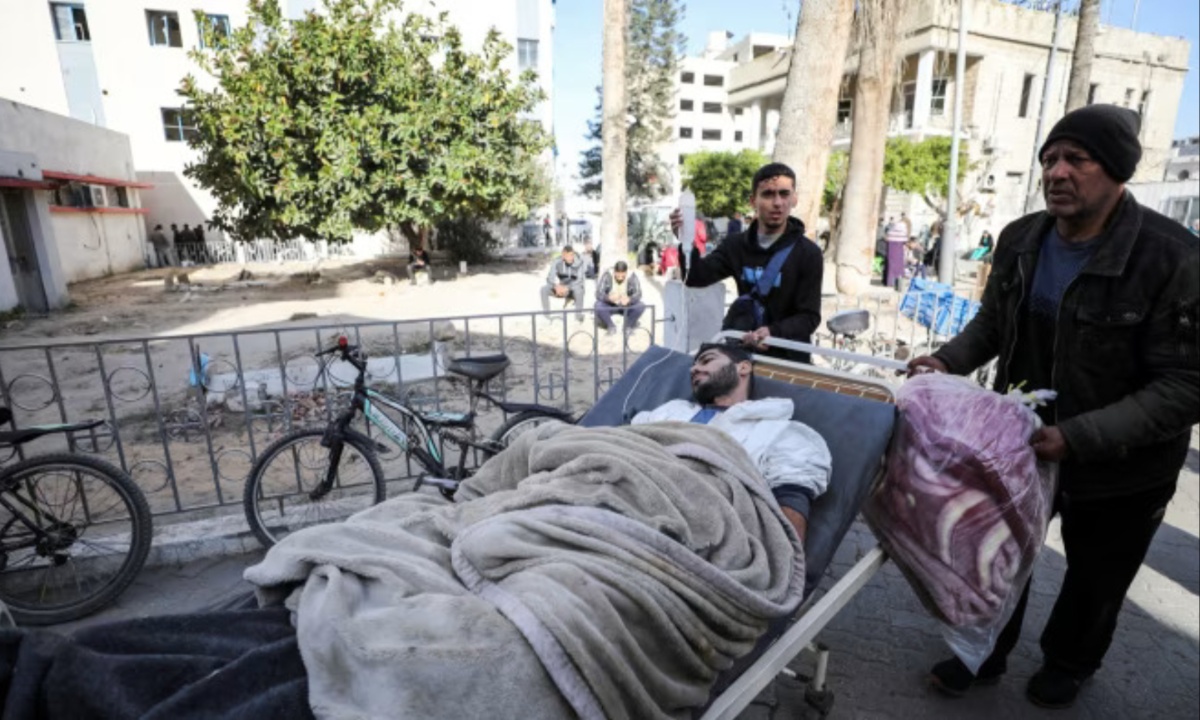In a recent Israeli raid, the director of Kamal Adwan Hospital was arrested, leading to the closure of the last major functioning health facility in northern Gaza. The raid intensified an already critical humanitarian crisis, as the hospital, which had been targeted by Israeli forces for months, was a vital source of medical care. Following the raid, patients, healthcare workers, and caregivers were evacuated to the Indonesian Hospital in Beit Lahiya, a facility that is now described as destroyed and nonfunctional by the World Health Organization. The fate of Dr. Hussam Abu Safiya, the hospital’s director, remains uncertain, with reports suggesting that he was specifically targeted by Israeli forces.
The Israeli military claimed that Kamal Adwan Hospital was being used as a Hamas stronghold and arrested Dr. Abu Safiya on suspicion of ties to Hamas. In addition, the IDF stated that it had detained over 240 individuals it alleged were connected to Hamas or Islamic Jihad, releasing those found not involved in terrorism. However, Hamas has strongly rejected these allegations, calling for international observers to verify the situation and refute the claims made by Israel regarding the hospital’s use. The accusation has sparked a global debate over the legitimacy of Israel’s actions.

Israeli Raid Targets Kamal Adwan Hospital in Northern Gaza, Intensifying Humanitarian Crisis
During the raid, patients and hospital staff were subjected to degrading and brutal treatment. Multiple accounts from medical personnel and patients describe how Israeli soldiers forced them to strip in public, with both men and women being ordered to undress and beaten if they resisted. One nurse described the violence, stating that individuals were struck with hoses, including the injured, elderly, and children. These actions have drawn widespread condemnation and raised serious concerns about the conduct of Israeli forces during the operation, particularly given the vulnerability of patients and medical staff.
Further complicating the situation, a fire broke out at the hospital, allegedly caused by Israeli airstrikes. The hospital staff, in an effort to control the flames, used water from a kidney dialysis machine, but it was contaminated with chlorine and other harmful chemicals, resulting in burns to their hands and faces. Tragically, one patient died in the fire, and there was significant damage to critical hospital infrastructure. The Israeli Defense Forces, however, denied responsibility for the fire, claiming that their operations occurred outside the hospital. These claims have been contested by hospital staff, who argue that the fire was directly linked to the Israeli military’s actions.
Amid the ongoing conflict, the humanitarian situation in Gaza has continued to deteriorate. The World Health Organization reported that Israeli authorities have repeatedly denied access to medical teams, further straining the already overwhelmed healthcare system. As hospitals like Kamal Adwan are destroyed or rendered nonfunctional, the suffering of the Palestinian population intensifies. International calls for action and accountability have increased, urging the deployment of independent observers and humanitarian aid to address the needs of those affected by the violence. The ongoing blockade and attacks on civilian infrastructure make it difficult for aid to reach those most in need, leaving many without access to essential care.
